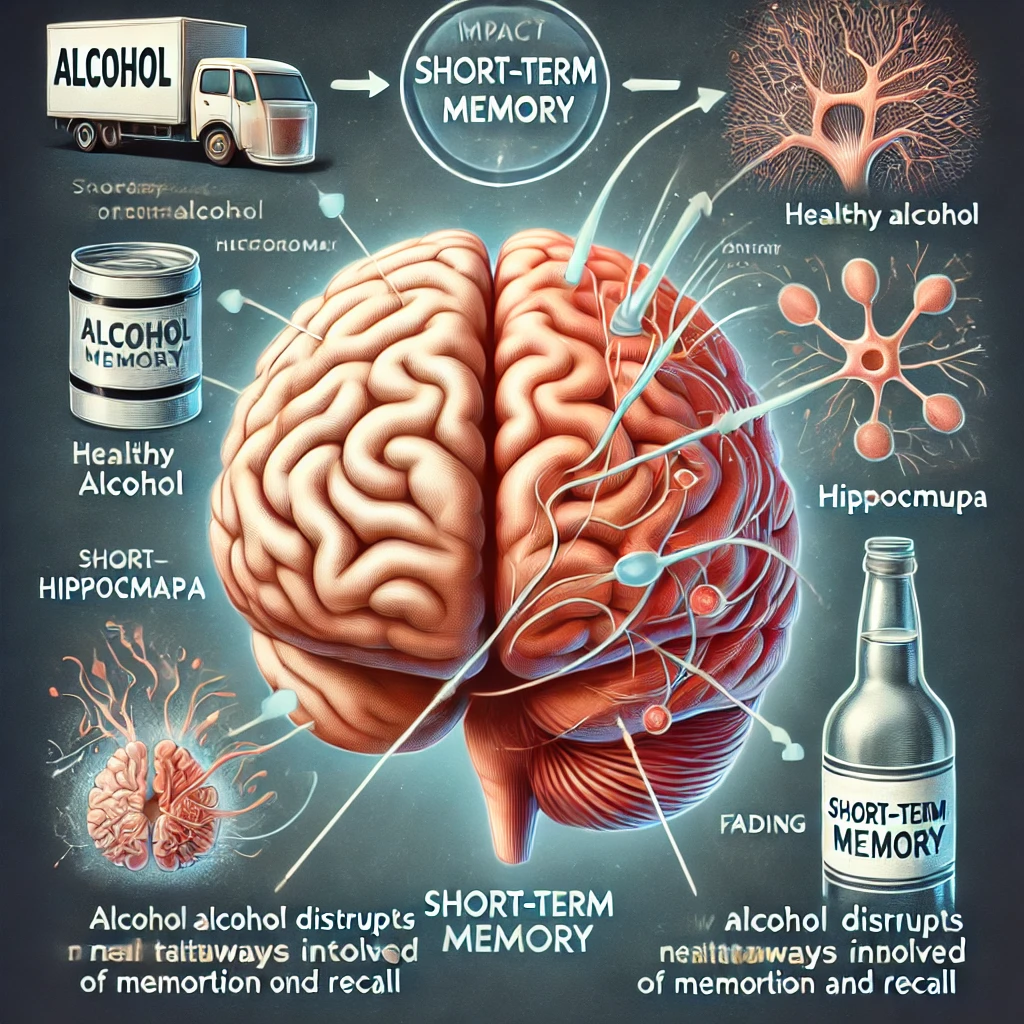Alcohol is often associated with social gatherings, celebrations, and relaxation, However, its impact on our brain, particularly on short-term memory, is a topic that warrants attention. Have you ever found yourself forgetting where you placed your keys after a night of drinking? Let’s delve into how alcohol use can affect short-term memory, and why it’s crucial to be aware of its implications.
The Science Behind Short-term Memory

Short-term memory, also known as working memory, is the brain’s system for temporarily holding and processing information. Imagine it as a mental notepad that helps you remember a phone number long enough to dial it. But what happens when alcohol enters the picture?
Alcohol and the Brain
When you consume alcohol, it quickly enters your bloodstream and travels to your brain. One of the first areas it affects is the hippocampus, a region critical for forming and retrieving memories. This disruption in the hippocampus can lead to difficulties in retaining new information, often causing short-term memory loss.
The Immediate Effects of short term memory loss
Ever experienced a blackout after a night of heavy drinking? This is a prime example of alcohol-induced short-term memory loss. During a blackout, your brain is unable to form new memories, resulting in a complete gap in your recollection of events. This can be both frightening and dangerous. You can also check Alcohol as a Neurotoxin
Imagine waking up in a strange place with no memory of how you got there. This is not just a plot from a movie; it’s a real consequence of excessive alcohol consumption.
Long-term Consequences
While occasional drinking might lead to temporary memory lapses, chronic alcohol use can have more severe and lasting effects on your brain. Studies have shown that long-term alcohol abuse can lead to persistent cognitive deficits, including problems with attention, learning, and, of course, memory.
The Role of Binge Drinking
Binge drinking, defined as consuming a large amount of alcohol in a short period, is particularly harmful. It can cause acute memory impairments and has been linked to long-term cognitive decline. Binge drinking episodes can severely disrupt the brain’s normal functioning, making it difficult to process and store new information. Test if you are drunk by answering this quiz here
Alcohol and Adolescents
The impact of alcohol on memory is especially concerning for adolescents. The teenage brain is still developing, and alcohol can interfere with this critical period of growth. Teens who drink heavily may experience more pronounced memory problems and cognitive impairments compared to adults.
Think about the long-term impact on a teenager’s future if their developing brain is frequently exposed to alcohol. This could affect their academic performance, career prospects, and overall quality of life.
Strategies to Mitigate the Impact
While the best way to prevent alcohol-induced memory loss is to limit alcohol consumption, here are some strategies that can help if you choose to drink:
- Pace Yourself: Avoid drinking large quantities of alcohol in a short time.
- Stay Hydrated: Drink water between alcoholic beverages.
- Eat Well: Consuming food can slow down the absorption of alcohol.
- Set Limits: Know your limits and stick to them.
Real-life Stories
Consider Sarah, a college student who frequently binge drinks on weekends. She finds it increasingly difficult to remember details from her classes and often forgets important appointments. After learning about the impact of alcohol on short-term memory, she decided to reduce her drinking. Over time, Sarah noticed a significant improvement in her memory and overall cognitive function.
Sarah’s story is a testament to the positive changes that can occur when you take control of your drinking habits.
Seeking Help
If you or someone you know is struggling with alcohol use and memory loss, it’s important to seek help. Many resources are available, including counseling, support groups, and medical treatments, to assist in managing alcohol use and its effects on the brain.
Conclusion
Alcohol’s impact on short-term memory is a serious concern that deserves attention. By understanding how alcohol affects the brain and taking steps to mitigate its effects, you can make informed choices about your drinking habits. Remember, your brain is a precious asset – take care of it.
Next time you reach for that drink, consider the potential impact on your memory. Is it worth the risk?
Note: This article aims to provide insights based on existing research and personal experiences. For personalized advice, please consult a healthcare professional.


1 thought on “Short term Memory Loss: How Alcohol Affects Your Brain”
Comments are closed.